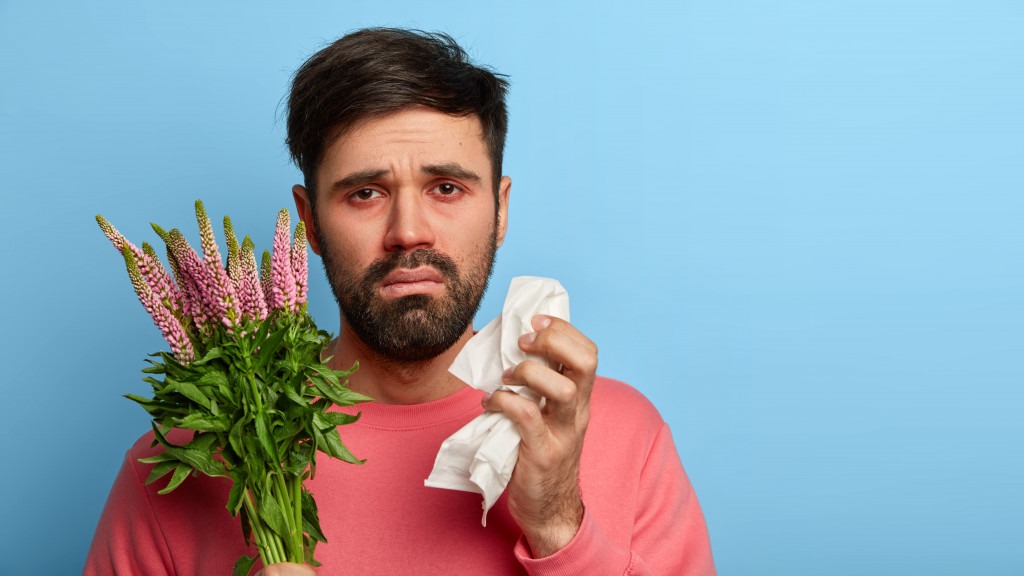If you’re like most people, the warmer months are when you feel most productive. You can finally break out of the winter funk and get things done. But just as you start to enjoy your newfound energy, allergies creep up and ruin everything. Suddenly, you’re sniffling, sneezing, and rubbing your eyes all day long. And don’t even get me started on the itchy throat.
Allergy season can be a real pain, especially if you’re trying to juggle a busy work schedule. But don’t worry; here are some tips for surviving allergy season while on the go.
Take allergy medication regularly.
This one seems like a no-brainer, but taking your allergy medication is essential even when you’re feeling fine. Allergy medication doesn’t just relieve symptoms; it also prevents them from occurring in the first place. So set a reminder on your phone or put a note in your planner to remember to take your medication every day.
It’s also important to consider various allergy treatments for adults. These can include oral immunotherapy (a.k.a. allergy shots), sublingual immunotherapy (under-the-tongue allergy drops), and nasal sprays. Of course, this would differ based on your allergy type, so be sure to talk to your doctor about what would work best for you.
The key is to start taking allergy medication before allergy season begins. That way, you’ll be one step ahead of your allergies and less likely to suffer from them throughout the spring and summer.
Keep your environment clean.
During allergy season, it’s important to keep your environment as clean as possible. This means vacuuming and dusting regularly and wiping down surfaces with a damp cloth. If you have pollen or pet dander allergies, keep windows closed and avoid spending time outside whenever possible.
Keeping your environment completely allergy-free might be impossible, but every little bit helps. The less exposure you have to allergens, the better your chance of avoiding a full-blown allergy attack. If keeping your environment clean isn’t enough, you might want to invest in an air purifier. Air purifiers can help remove allergens from the air, giving you some much-needed relief.
If you’re going to be outside for an extended period, it’s a good idea to wear a mask. This might not be the most stylish option, but it’s certainly better than sneezing your way through the day.

Know your triggers.
One of the best things you can do for yourself during allergy season is to know your triggers. If you’re unsure what your triggers are, keep a diary of your symptoms and note when they occur. This will help you narrow down what’s causing your allergies and allow you to avoid those triggers as much as possible.
Some common triggers include pollen, dust, pet dander, and certain foods. Once you know your triggers, you can take steps to avoid them, such as staying indoors on days when pollen levels are high or investing in a HEPA filter for your vacuum cleaner.
Of course, there will be times when you can’t avoid your triggers. When this happens, it’s crucial to have quick-relief allergy medication on hand. That way, you’ll be prepared for anything and can stop your symptoms in their tracks.
Don’t let allergies ruin your summer. The important thing is to be aware of your triggers and do what you can to avoid them. Allergy season is hard enough without having to worry about triggering an attack.
Stay hydrated and eat healthy foods.
Staying hydrated is essential all year round but vital during allergy season. Drinking plenty of water will help to thin out mucus and improve drainage. It will also help to flush allergens out of your system. So, drink at least eight glasses of water a day during allergy season.
What you eat can also make a big difference during allergy season. Eating foods high in antioxidants can help reduce inflammation and ease symptoms. Some good options include berries, dark leafy greens, nuts, and seeds. Consider adding these items to your diet during allergy season for an extra boost.
In addition, try to avoid foods that can make allergies worse. These include dairy, soy, wheat, and shellfish. If you’re unsure if a type of food is safe for you to eat, talk to your doctor or an allergist. They most likely have a bunch of tips and tricks that can help you make it through allergy season without a hitch.
Allergy season is never fun, but it doesn’t have to be the end of the world. By following these tips, you can survive this season despite having a busy schedule. Just remember to start taking allergy medication before the season begins, keep your environment clean, and stay away from your triggers. You can make it through allergy season without too much trouble with a little effort.

